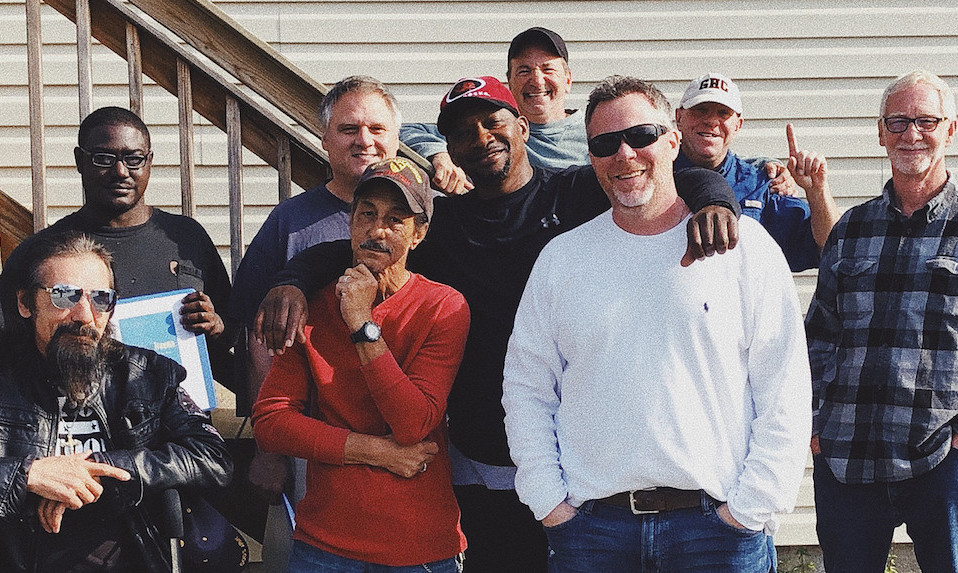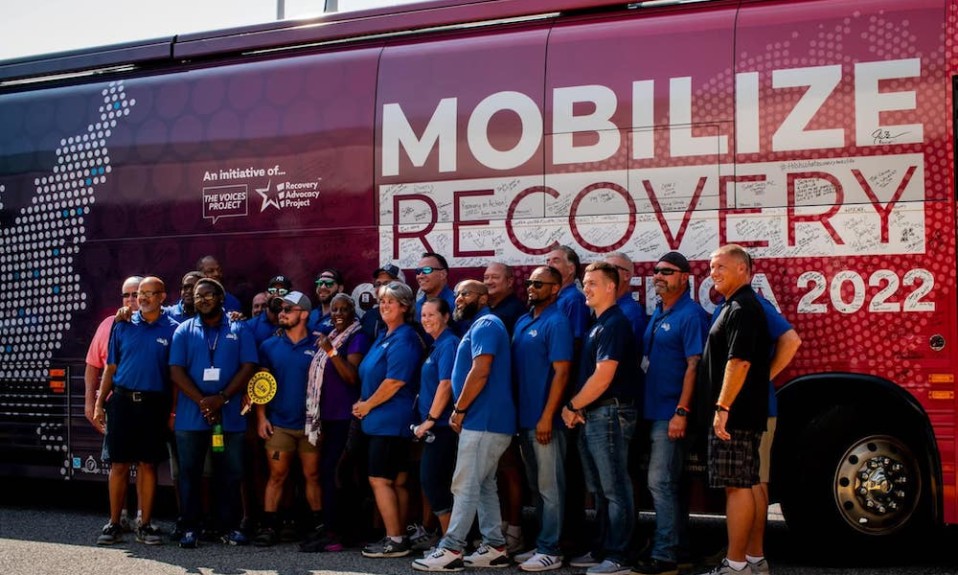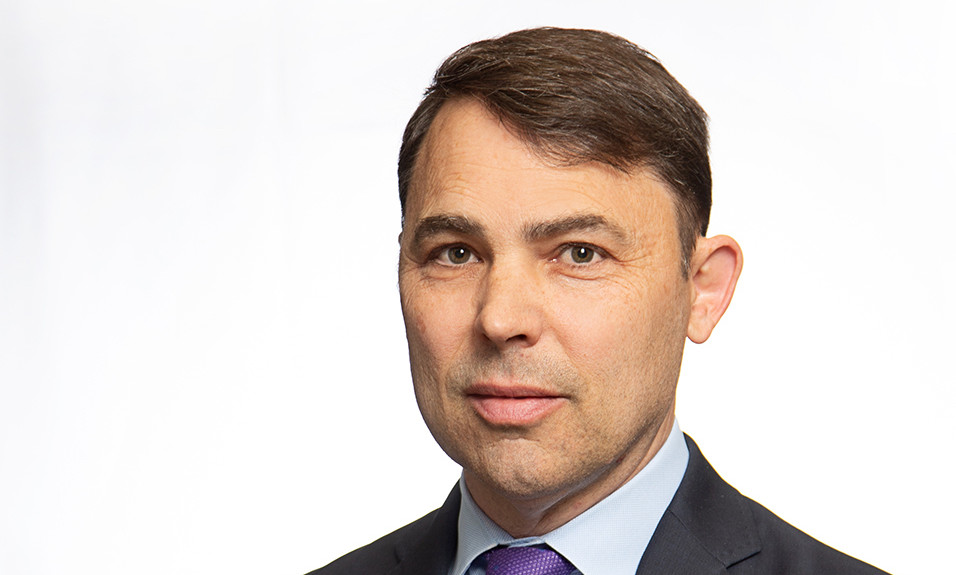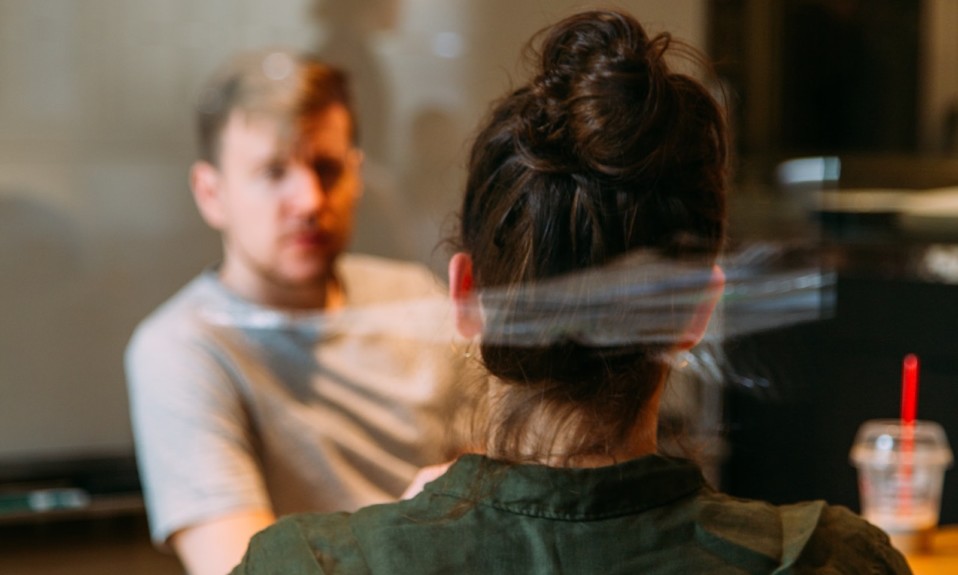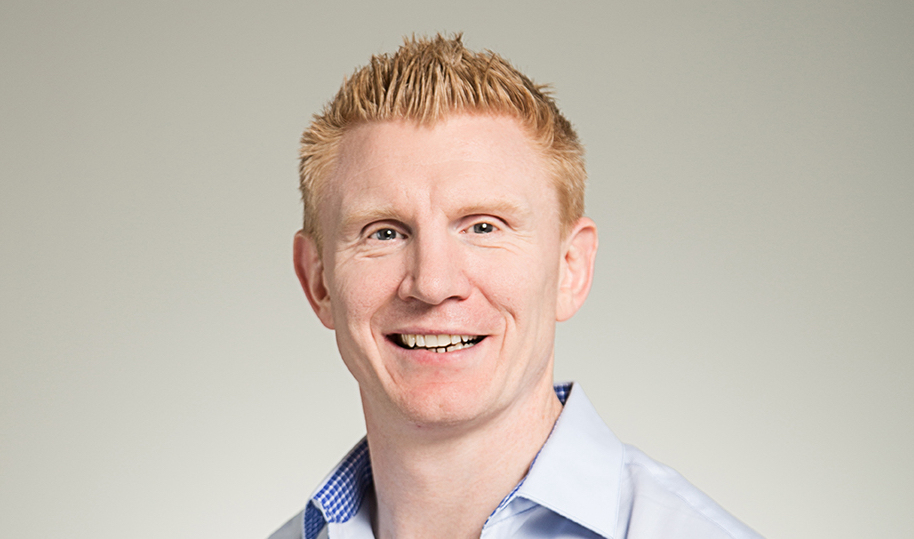Bobby Brazell [pictured in white shirt] has put the lessons learned from his own fraught addiction journey to good use with his nonprofit center
By Jenny Diedrich
Bobby Brazell openly shares his long, harrowing journey of drug use and recovery with anyone who will listen, hoping it might help even one person.
After 20 years of active addiction and multiple times in inpatient treatment, Brazell now is in long-term recovery from opioid use disorder (OUD) and has been drug-free since 2014. He’s the founder and executive director of Midlands Recovery Center, a nonprofit organization in Lexington, S.C., that helps people transition from treatment into recovery.
“Midlands is nontraditional,” Brazell says. “We just do things differently. You don’t have to go to 12-step meetings. That’s an option, but it was created for old men who drank too much. It’s not for 20-year-olds who use fentanyl and are waiting to hit bottom. You have to change how you reach people. We measure success in life. Are they alive? Are they engaged?”
TreatmentMagazine.com talked to Brazell about his personal story, how Midlands Recovery Center was formed and his views on addiction treatment in the U.S.
Q: How did your drug use begin?
A: I began heavy drug use in 1994 after two of my friends left my house from a birthday party. I bought alcohol, and they were underage. Once I passed out, they left my house and missed a curve and were both killed. They were 20, and I was 24. I was in disbelief. I was looking at about 30 years in prison for buying alcohol for minors. I was scared to death and kind of went on the run. I finally turned myself in and was charged with transferring alcohol to a minor resulting in death.
I was sentenced to three years’ probation contingent upon completing a drunk driving program where I spoke about what happened. I did it because if I hadn’t, I would have gone to prison, but I don’t remember one of my talks.
I’m trying to change the way people see substance abuse disorder—as a medical crisis and not a moral failure. If you had cancer and went to your doctor because your cancer had come back, they wouldn’t call the police.”—Bobby Brazell, executive director of Midlands Recovery Center
It came to a point where there wasn’t enough alcohol or weed to kill what I was feeling. I was introduced to pain pills and learned a very important lesson in supply and demand. Just because I was out of supply didn’t mean my body did not demand something. It turned into a physical dependency.
Then I started using heroin. I didn’t understand the commitment of what I was getting into at the time. My roommate shot me up for the first time, and it was a done deal. It was not a choice. I had to do it or I couldn’t get out of bed.
Q: You continued using drugs for many more years. What were you doing during that time?
A: I was in a band, and we were a party band. We opened for Hootie and the Blowfish and Kid Rock. We traveled and it was good, but it was horrible. Especially in the environment I was in, it wasn’t hard to maintain [my drug use]. I would go on tour, come back and go to rehab. I might stay sober for 20 minutes when I got home [from rehab].
In 2001, I quit the band, changed jobs and moved. I went to school and became a paramedic. I worked my way up, and I was functional. The misconception is that when you’re using, you’re falling down and falling asleep. I ended up getting arrested in 2013 for fraudulently obtaining narcotics. I had recently gotten married, and my wife had no idea of the extent of my drug use. That’s when her family and everyone found out. I was on the news.
Q: What happened the last time you went to treatment?
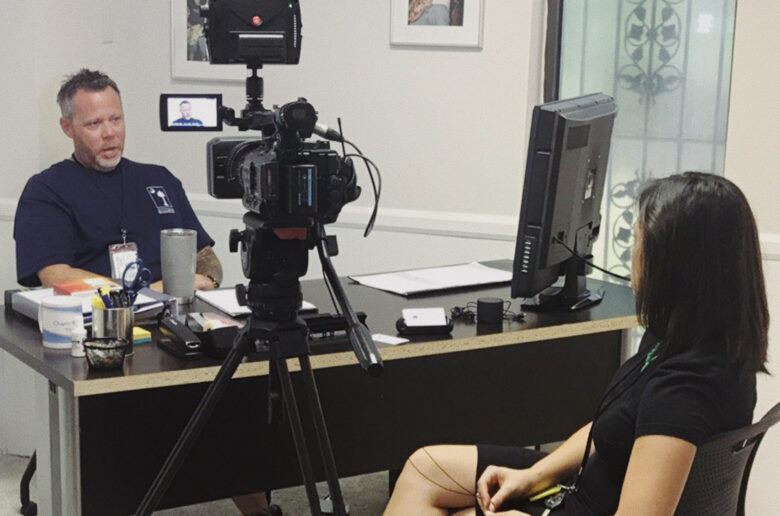
A: I drove myself to treatment. I was 44 and had no will to live. I had a very strongly worded conversation with God that night, and I challenged him to let me die. I made a promise: If you help me stay sober, I will do anything you need and help anyone. I woke up and had a comfort.
My counselors helped me reprocess the trauma of 1994. When I walked out of that first session, the sky was the bluest I had ever seen. I heard birds chirping. I felt like I could get a full breath of air in my lungs. Something that I couldn’t even mention before became a huge part of my story. I went from not even knowing that it was still bothering me to knowing that trauma was my gateway drug. I had been doing everything I could to not feel.
I was gone for two months and hadn’t seen my wife. I walked in the door, and it was like she met me for the first time. She had never known me sober. We worked on our marriage and reconciled. She’s a saint because of the worry and trauma she experienced and all the chaos that ensued. We’ve been married 16 years, and I’ll be sober seven years in October.
Q: How did Midlands Recovery Center start?
A: At a year sober, I ran into a social worker I knew, and he wanted me to take a class on peer support. I didn’t even know what it was. I took the class, and it became crystal clear why I had gone through all the things I’d gone through. My purpose is to help other people. It lit a fire. I got trained as an interventionist and a family recovery coach. I started getting credentials.
I was working out of the trunk of my car meeting clients at Starbucks. I was meeting people who had known me before and saw the change. They would seek me out through Facebook. That made me think I could do this. I opened a nonprofit having never owned a business in my life. I started Midlands in 2017, and the next thing you know I had a mission statement and by-laws.
Q: What services does Midlands Recovery Center provide?
A: Our mission statement is to bridge the gap between services. A lot of the public thinks that someone needs help, so let’s just get them help. Help is not readily available. In our state [South Carolina], there are only 64 medical detox beds for people who are uninsured. Opiates and methamphetamines don’t even meet the criteria for inpatient care.
We have so far to go. In the hospital system, someone will overdose, and they will stabilize them after six or seven hours and release them back to the street.”—Bobby Brazell
I do advocacy for people who have been arrested for nonviolent drug-related offenses. Instead of sending them to jail, we try to send them to treatment. They may be released to me, and I drive them directly to treatment. I follow up with them.
I credential people as peer-support specialists. I train people within the prison system to work with other inmates. We work with families to help mend broken relationships.
We serve our community in whatever capacity is needed. I had an idea what I wanted [Midlands] to be when I started, but it ended up evolving because of what the community needed. If I would have stayed rigid, we would not be in business. COVID has changed everything. Treatment centers were no longer accepting patients, and there were no in-person meetings. So we wrote a grant to improve virtual recovery services.
We’ll be doing HIV and hepatitis testing free in the month of December and will have referrals for those who test positive. That gives us an opportunity to talk to them, because this population is at risk. We offer hope through lived experience. It’s showing people that I’ve been in the hole, too.
Q: Midlands Recovery Center distributes Hope Bags a few times each month. What are these?
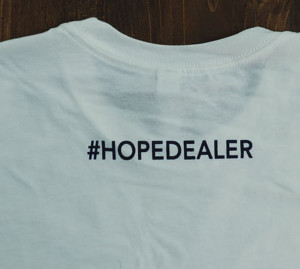
A: I wanted to go where the people were in the homeless encampments, but I didn’t want to go and say, “Everyone who is homeless is on drugs.” We put together bags with soap, washcloths, hygiene products, water and my business cards. Now I have a goodie bag to give them, and I can have a conversation. If they need Narcan, I can give it to them. It’s not insulting or threatening. It gives them the opportunity to see someone who actually cares and wants to help. It’s just human contact. Recovery is connection and meeting people where they are with no judgment.
Q: What’s your perspective on the state of addiction treatment in the U.S.?
A: Help is not always readily available and is dependent upon what private insurance pays for. For a 28-day inpatient program, it’s really about 23 days, because that’s what insurance will pay for and not because you’re cured.
If you don’t have insurance, you have no medical treatment available to you except state-run facilities that were at half capacity during [the pandemic] or not accepting patients at all. We have so far to go. In the hospital system, someone will overdose, and they will stabilize them after six or seven hours and release them back to the street. Why is that not treated the same as a suicide attempt, where they’re on a 72-hour hold?
It’s almost kind of embarrassing. I get a lot of accolades, and I feel like I really shouldn’t be getting accolades for being a decent human. Why did I make it when others didn’t? I’m not special.”—Bobby Brazell
There’s still so much stigma within the medical profession. I’m trying to change the way people see substance abuse disorder—as a medical crisis and not a moral failure. If you had cancer and went to your doctor because your cancer had come back, they wouldn’t call the police. We call [substance use disorder] a disease and that is medically accepted and proven, but we don’t treat it as such.
Q: In seven years, you’ve gone from a heavy drug user to the director of a recovery center that helps thousands of people. How does that make you feel?
A: It’s almost kind of embarrassing. I get a lot of accolades, and I feel like I really shouldn’t be getting accolades for being a decent human. Why did I make it when others didn’t? I’m not special. I’ve been put in this place where I’m the poster boy for the recovery community. That’s a good thing, and it’s also a bad thing. It makes me uncomfortable. I’m just a guy in recovery. I still find it hard to believe.
I feel like it’s a purpose. If it’s to help one person, then this is why I’m doing what I do. I would not enjoy the life I have today if I wouldn’t have gone through all that.


